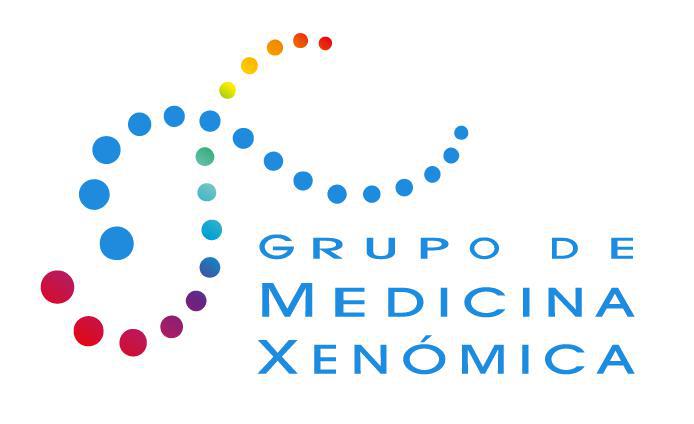Population Genetics
Main researcher Antonio Salas Ellacuriaga
- Archaeogenetics/molecular anthropology. Variation patterns in different groups of human populations (archeogenetics/molecular anthropology): Native Americans, Europeans, Asians, Africans, mestizo populations (e.g. ‘African Americans’)
- Research in large population movements in human populations (Bantu expansion, trans-Atlantic slave trade, migration and miscegenationin American populations, etc.) and the effects on the distribution of human variability.
- Linkage imbalancepatterns in human populations
- Phylogeny, mutation rates, and bioinformatics database processing. Mutation ranges in uniparental (haplotype, mitochondrial DNA and Y chromosome) and autonomic markers.
- Phylogenetics and phylogeography of mitochondrial DNA. Analysis and evaluation of published research on complex diseases (mtDNA). Data quality checking.
- Statistical development. Statistical development applied in various research areas (forensics, clinical and population genetics).
- Methods for the inference of geographical origin based on the analysis of haplotype genetic profiles and non-linked SNP.
- Analysis methods of demographic stratification
- Biomedical applications of population genetics
- Study of the demographic stratificationand its implications in clinical and population genetics
- Development of statistical models of epistasis
- Development of applications of population genetics in clinical genetics; e.g. mitochondrial phylogenetics in the study of mitochondrial diseases and database errors detection; methods for the inference of pathogenic mutations, etc.
- Mitochondrial diseases and mitochondrial instability in tumorigenesis.
- High-efficiencySNP genotyping
- Population sub-structure (mtDNA, autosomal SNPs)

Comparative Genomics and Parasitology
Main researcher: Xulio M. Maside Rodríguez
- Study of the evolutionary forces that determine the size, structure and composition of genomes, with special attention to moving elements.
- Description of the genetic properties of the populations of these organisms, knowledge of basic aspects of their biological cycles (e.g. existence of phases of sexual reproduction, meiotic recombination, hybridization), in protozoan genomes:
– Cryptosporidiumy Giardia in humans
– Nosemaceranae, microsporidium responsible for the phenomenon of depopulation of honey bee colonies (Apis mellifera) - Development of high-efficiency genotyping tools for the analysis of large faecal samples in Cryptosporidium-infected patients. Protozoal parasites and global warming: analysis of the long-term molecular epidemiology of cryptosporidiosis in Santiago de Compostela area.
- Comparative genomics in Cryptosporidium. Does natural selection model diversity patterns along the Cryptosporidium genome? Keys to the identification of therapeutic targets.
- Application of single-cell analysis methodology forunderstanding the genetic structure and life cycle of Giardiaduodenalis, are population infections clonal? Does sex play any role in its evolution?

Genetics Epidemiology
Main researcher: Raquel Cruz Guerrero
- Genetic Epidemiology: Characterization of the spatial distribution of multiple sclerosis (MS) in Europe: study of the relative contribution of genetic and environmental factors and gene-environment interactions on heterogeneity in prevalence.
-Study of the influence of climatic and meteorological variables of MS’s frequency outbreaks and migraine attacks
-Comparison of gene frequency estimated by spatial interpolation and genetic allocation techniques
-Characterization of population heterogeneity at a local level by exon versionsat a different frequency (SNPs useful benchmark and rare variants)
-Characterization of the distribution of ADME genes in indigenous and mestizo populations in South America - on data processing and statistical analysis on studies conducted by other areas, especially in rare diseases: association of candidate genesand genome-wide (GWAS) analysis with pharmacokinetic parameters, response and presence of drug adverse effects
-Identification and correction of stratification using multivariate techniques (eigenstrat, DAPC…)
-Interpretation and optimization of data from NGS; integration of variations in statistical analysis
-Association of common and rare variations analysis at the gene or pathway (burden test, SKAT…)







